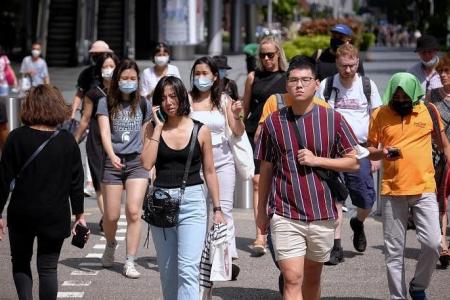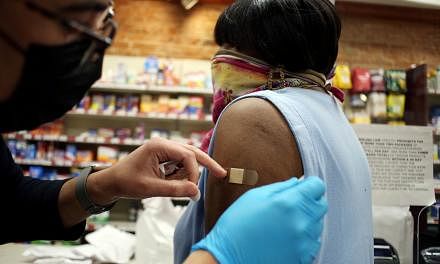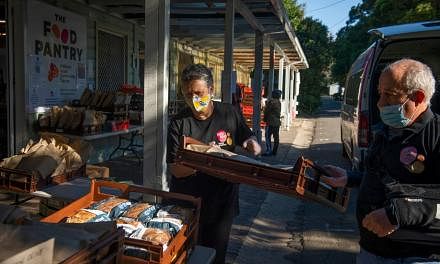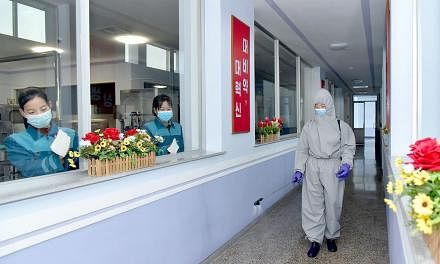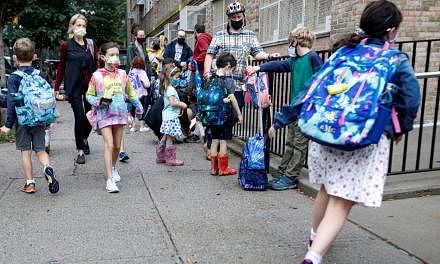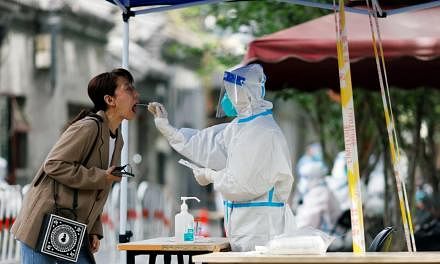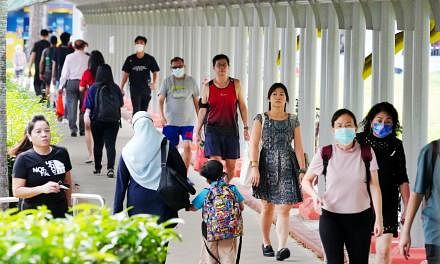Next Covid-19 wave could hit Singapore in July or August: Ong Ye Kung
The next Covid-19 wave could hit Singapore in July or August, and every healthcare setting - from nursing homes to community hospitals - must be prepared to handle such patients, said Health Minister Ong Ye Kung.
Singapore cannot afford to repeat what it did during the Omicron wave, when many people were taken to public hospitals because the facilities in which they were being cared for could not manage them properly, he added.
These included nursing homes, community hospitals and private hospitals.
"Every healthcare setting needs to be Covid-ready, to be able to handle your own infections, take care of them in situ," Mr Ong said at his ministry's annual work plan seminar on Thursday (June 2). "Because with vaccination, most will recover uneventfully."
Singapore is preparing for a Covid-19 wave driven by the BA.4 and BA.5 Omicron sub-variants, which were first detected in South Africa.
The good news, said Mr Ong, is that cases there peaked at a lower level than what was seen with the original Omicron wave. The country also did not see a sharp rise in hospitalisation and death rates.
Singapore, having lived through several waves of Covid-19, can afford to be "quietly optimistic", especially since vaccination coverage is high and mask-on rules are still in place, he added.
Even so, it needs to shore up its defences. Apart from making sure that all healthcare facilities can handle Covid-19 patients, the country also needs to make more hospital beds available, in case pressure builds up again.
This is being done in three ways, Mr Ong said.
First, hospitals have rolled out home care services, freeing up beds while allowing people to receive care in their own homes.
Second, many long-term hospital patients are waiting for places in nursing homes. If Singapore can ramp up the number of nursing home beds, these patients can be moved there.
Lastly, the country needs to change how its community treatment facilities work, Mr Ong said.
These facilities were set up last year to take in elderly Covid-19 patients who required closer monitoring but were otherwise in stable medical condition.
Now, they must be redesigned to take in any patient who does not require the acute care that a hospital provides, regardless of their illness, he said.
Singapore must also focus on convincing eligible seniors aged 60 and above to get their booster shots, Mr Ong said. Around 12 per cent of people in this age group have not yet done so.
"This is the group that's most vulnerable, and I think we need to focus on getting them vaccinated with their third shot."
Get The New Paper on your phone with the free TNP app. Download from the Apple App Store or Google Play Store now

